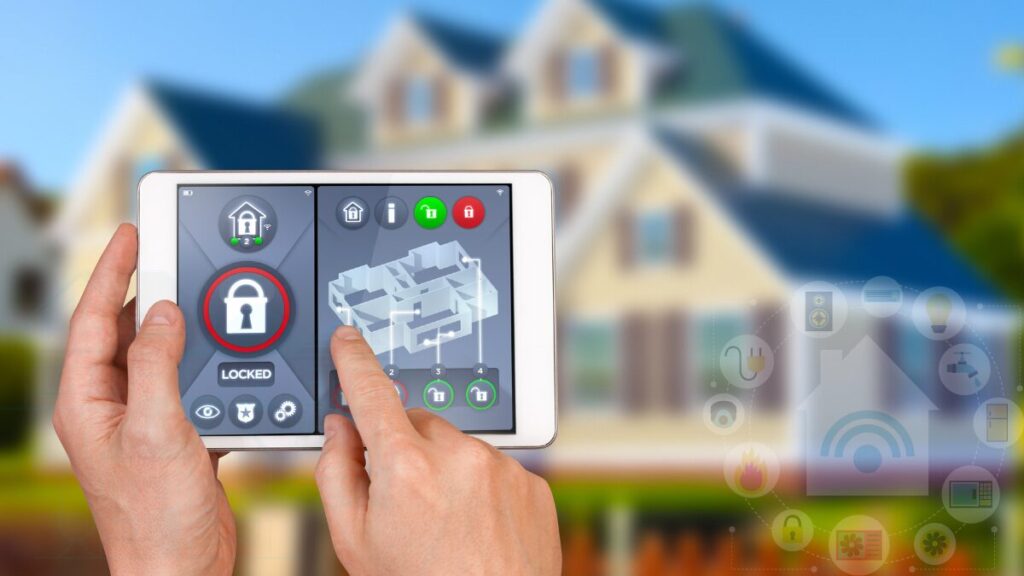Installing smart home technology has been a game-changer for a lot of people recently. Property managers can improve their rental properties’ marketability, save time and money on maintenance, and boost profits by implementing these technological solutions. The potential for smart home technology to completely alter the rental property management industry is discussed in this article.
Key Takeaways:
- Smart home technology enhances energy efficiency and cost savings through devices like smart thermostats and lighting systems.
- Smart locks and security cameras greatly enhance security, giving you piece of mind and making your life easier.
- Maintenance and management are streamlined with smart sensors and HVAC monitoring, allowing for proactive issue detection and resolution.
- Tenant experience and property marketability are boosted with modern conveniences like voice assistants and smart appliances, making properties more attractive and potentially increasing their value.
1. Energy Efficiency and Cost Savings
Smart Thermostats: Smart thermostats like Nest or Ecobee can be programmed to optimize heating and cooling based on tenant schedules. Setting up a smart home system with these devices can enhance energy efficiency and convenience for tenants. Utilities included in rent attract environmentally conscious renters and result in lower utility expenditures for property management.
Smart Lighting: Tenants can control lighting via smartphone apps, set schedules, and even use voice commands through systems like Amazon Alexa or Google Home.
2. Enhanced Security
Smart Locks: Tenants can lock and unlock doors using their smartphones, eliminating the need for physical keys. For property managers, smart locks simplify the process of changing locks between tenants and provide a detailed log of who enters and exits the property.
Security Cameras: Installing smart security cameras like those from Ring or Arlo can deter crime and provide peace of mind to tenants.
3. Improved Maintenance and Management
Smart Sensors: Leak detection sensors can alert property managers to potential water damage before it becomes a costly repair. These sensors can be placed near appliances, under sinks, and in basements to detect leaks early.
HVAC Monitoring: By monitoring performance and maintenance needs, these systems help ensure HVAC units operate efficiently and reduce the risk of unexpected breakdowns.
4. Tenant Experience and Convenience
Voice Assistants: The convenience of voice assistants like Google Home or Amazon Alexa can greatly improve the experience of tenants. These devices allow them to operate smart gadgets, play music, acquire information, and much more without using their hands. This modern amenity can make a rental property more attractive to tech-savvy tenants.
Smart Appliances: Smart gadgets, like renters-facing refrigerators that send out low-food alerts or remotely-operated ovens, can give your rental home an edge.
5. Property Value and Marketability
Your rental property’s value can rise if you install smart home technology. Modern, tech-equipped homes are more attractive to potential renters, allowing you to command higher rents and reduce vacancy rates.
6. Data and Insights
Usage Analytics: Smart home systems often come with data analytics capabilities, allowing property managers to gain insights into energy usage, security events, and maintenance needs.
Implementation Strategies
- Start Small: Begin with a few smart devices, such as smart thermostats or locks, and gradually expand based on tenant feedback and operational benefits.
- Educate Tenants: Provide tenants with clear instructions on how to use smart devices. Consider hosting a demonstration or providing online resources.
- Partner with Professionals: Work with reputable vendors and installers to ensure devices are set up correctly and integrated seamlessly into your property management system.
- Regular Updates and Maintenance: Keep firmware and software up-to-date to ensure security and optimal performance of smart devices.
Benefits of Incorporating Smart Home Technology in Rentals
1. Enhanced Energy Efficiency and Cost Savings
- Smart Thermostats: Optimize heating and cooling based on tenant schedules, leading to lower energy bills.
- Smart Lighting: Automated and remote-controlled lighting reduces unnecessary energy consumption.
2. Improved Security and Convenience
- Smart Locks: Allow keyless entry and detailed access logs, enhancing security and simplifying lock changes.
- Security Cameras: Provide real-time monitoring and alerts, deterring crime and offering peace of mind.
3. Streamlined Maintenance and Management
- Smart Sensors: Detect leaks and other issues early, preventing costly damage.
- HVAC Monitoring: Alerts property managers to potential problems before they become major issues, ensuring efficient operation.
4. Increased Tenant Satisfaction and Marketability
- Voice Assistants: Enhance the living experience with hands-free control of smart devices.
- Smart Appliances: Offer modern conveniences that attract tech-savvy tenants and justify higher rents.
5. Higher Property Value and Appeal
- Future-Proofing: Modernizes properties, making them more attractive to potential renters and increasing their long-term value.
- Competitive Edge: Differentiates properties in the rental market, leading to lower vacancy rates and higher rental income.
FAQs
1. How does smart home technology help in reducing energy costs?
Smart home technology reduces energy costs by optimizing the usage of heating, cooling, and lighting through devices like smart thermostats and smart lighting systems, which can be programmed to operate based on occupancy patterns and tenant schedules.
2. What are the benefits of installing smart locks in rental properties?
Smart locks enhance security and convenience by allowing tenants to lock and unlock doors using their smartphones, eliminating the need for physical keys, and providing property managers with detailed logs of entry and exit activities, simplifying the process of changing locks between tenants.
3. How can smart home technology improve maintenance and management for property managers?
Smart sensors in smart homes can detect problems like leaks before they become big problems, HVAC monitoring systems can warn property managers before problems get worse, and data analytics can help with better decisions and better operations.
Conclusion
Installing smart home technology in rental homes wisely can lead to numerous benefits, including cost savings, increased security, happier renters, and a higher property value. Property managers can improve efficiency and provide tenants with a more appealing, contemporary living experience by utilizing these technology. Smart things are on the horizon for rental property management, and the pioneers will be the ones to profit.
